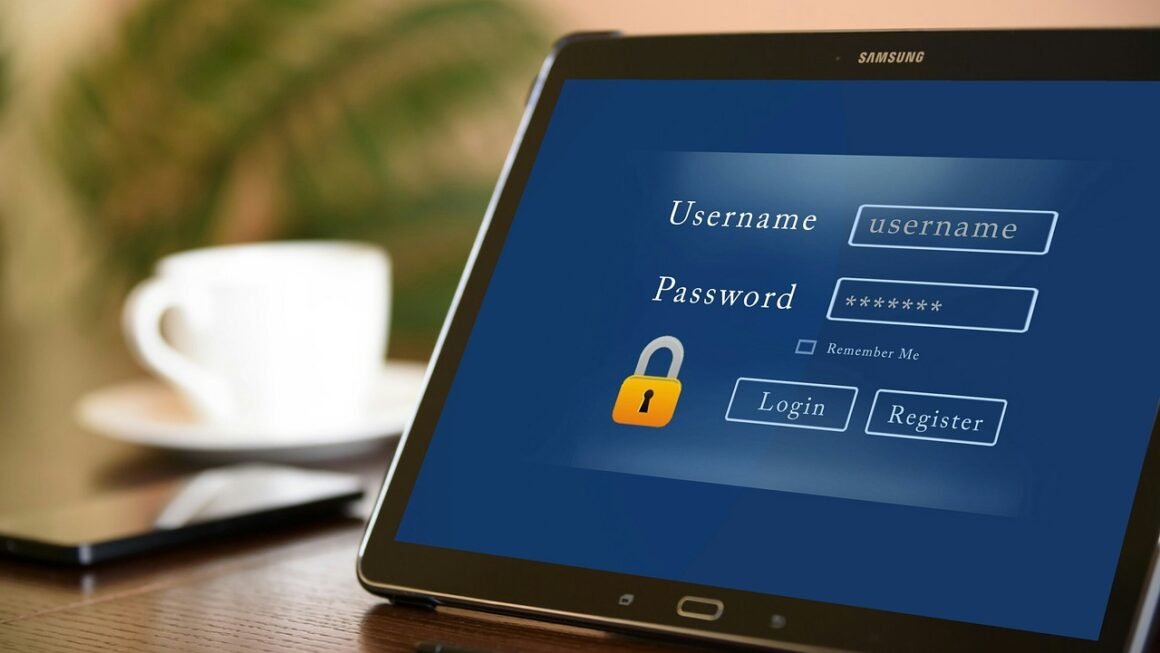In today’s digital age, online privacy and security are paramount. Whether you’re browsing the web, streaming content, or conducting sensitive transactions, your data is vulnerable to various threats. A Virtual Private Network (VPN) offers a robust solution to protect your online activities and enhance your digital freedom. This comprehensive guide will explore the ins and outs of VPNs, covering everything from their basic functionality to advanced usage scenarios.
What is a VPN and How Does it Work?
Understanding the Basics
A VPN, or Virtual Private Network, creates a secure, encrypted connection between your device and a VPN server. This server acts as an intermediary, masking your real IP address and encrypting your internet traffic. Think of it as a private tunnel that shields your data from prying eyes as it travels across the internet.
- A VPN encrypts your internet traffic, making it unreadable to third parties.
- It masks your IP address, hiding your location and identity.
- It routes your traffic through a VPN server in a location of your choosing.
How Encryption Works
Encryption is a crucial component of VPN technology. When you connect to a VPN server, your data is scrambled using cryptographic algorithms. This means that even if someone intercepts your traffic, they won’t be able to decipher the information without the decryption key. VPNs typically use strong encryption protocols like AES (Advanced Encryption Standard) with 256-bit keys, which are virtually unbreakable.
- Data is scrambled using cryptographic algorithms.
- Strong encryption protocols like AES-256 are used.
- Intercepted traffic is unreadable without the decryption key.
Practical Example: Public Wi-Fi Security
Imagine you’re working from a coffee shop and using their public Wi-Fi. Public Wi-Fi networks are notoriously insecure, making you vulnerable to hackers who may be lurking on the same network. By connecting to a VPN, you encrypt your data, preventing hackers from intercepting your passwords, financial information, or other sensitive data.
Why Use a VPN? Key Benefits
Enhanced Security and Privacy
The primary reason to use a VPN is to enhance your online security and privacy. VPNs protect your data from various threats, including:
- Hackers: Prevent hackers from intercepting your sensitive data on public Wi-Fi networks.
- ISPs: Stop your Internet Service Provider from tracking your browsing habits and selling your data.
- Government Surveillance: Circumvent government censorship and protect your privacy from surveillance.
According to a recent study, 73% of VPN users cite security as their primary motivation for using a VPN.
Accessing Geo-Restricted Content
Many websites and streaming services restrict access based on your geographical location. A VPN allows you to bypass these restrictions by connecting to a server in a different country.
- Example: Access Netflix libraries from other countries. If you’re traveling abroad, you can use a VPN to access your home country’s Netflix library.
- Example: Watch BBC iPlayer from outside the UK. BBC iPlayer is only available to UK residents, but a VPN can allow you to access it from anywhere in the world.
Bypassing Censorship
In countries with strict internet censorship, a VPN can be a lifeline for accessing information and communicating freely. By connecting to a VPN server in a country with a free and open internet, you can bypass censorship filters and access blocked websites and social media platforms.
- Example: Access social media platforms like Facebook and Twitter in countries where they are blocked.
- Example: Read independent news sources that are censored by the government.
Safe Torrenting
Torrenting is a popular way to share files online, but it can also expose your IP address and make you vulnerable to copyright infringement lawsuits. A VPN hides your IP address and encrypts your traffic, protecting you from legal repercussions.
- Important Note: While VPNs can enhance your privacy while torrenting, they do not condone illegal activity. Always respect copyright laws and only download legally available content.
Choosing the Right VPN
Key Factors to Consider
Selecting the right VPN requires careful consideration of several factors:
- Security: Look for VPNs that use strong encryption protocols (like AES-256) and offer features like a kill switch (which automatically disconnects your internet connection if the VPN connection drops).
- Privacy: Choose a VPN with a strict no-logs policy, meaning they don’t track or store your online activity.
- Speed: Opt for a VPN with fast and reliable servers in multiple locations.
- Server Locations: Ensure the VPN has servers in the countries you need to access content from.
- Price: VPN prices vary widely. Consider your budget and choose a VPN that offers good value for money.
- User-Friendliness: Pick a VPN with an easy-to-use interface and helpful customer support.
Paid vs. Free VPNs
While free VPNs may seem attractive, they often come with significant drawbacks:
- Limited Bandwidth: Free VPNs typically impose data limits, making them unsuitable for streaming or downloading large files.
- Slower Speeds: Free VPNs often have overcrowded servers, resulting in slower speeds.
- Privacy Concerns: Some free VPNs track your browsing activity and sell your data to third parties.
- Security Risks: Free VPNs may not use strong encryption or may even contain malware.
- Recommendation: For the best security, privacy, and performance, it’s generally recommended to choose a reputable paid VPN service.
Popular VPN Providers
Here are a few popular and well-regarded VPN providers:
- NordVPN: Known for its strong security features and vast server network.
- ExpressVPN: Renowned for its fast speeds and user-friendly interface.
- Surfshark: A budget-friendly option that offers unlimited device connections.
- CyberGhost: A user-friendly VPN with a large server network and dedicated servers for streaming and torrenting.
Setting Up and Using a VPN
Installation and Configuration
Setting up a VPN is usually a straightforward process:
Advanced Settings and Features
Most VPN apps offer a range of advanced settings and features:
- Kill Switch: Automatically disconnects your internet connection if the VPN connection drops, preventing your data from being exposed.
- Split Tunneling: Allows you to choose which apps use the VPN connection and which use your regular internet connection.
- Protocol Selection: Allows you to choose the encryption protocol used by the VPN.
- Custom DNS Servers: Allows you to use custom DNS servers for enhanced privacy.
VPNs on Different Devices
VPNs can be used on a variety of devices, including:
- Computers: Windows, macOS, Linux
- Smartphones and Tablets: Android, iOS
- Routers: Some routers have built-in VPN support, allowing you to protect all devices connected to your network.
- Smart TVs and Streaming Devices:* Some smart TVs and streaming devices support VPN apps.
Conclusion
A VPN is an essential tool for anyone who values their online privacy and security. By encrypting your internet traffic and masking your IP address, a VPN protects your data from hackers, ISPs, and government surveillance. Whether you’re browsing the web, streaming content, or conducting sensitive transactions, a VPN can provide peace of mind and enhance your digital freedom. By understanding the benefits of VPNs and choosing the right provider, you can take control of your online security and protect your privacy in today’s digital world. Always remember to prioritize security and privacy when choosing a VPN, and opt for a reputable paid service for the best performance and reliability.



